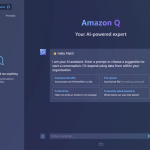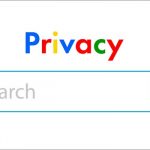Decentralized social media is a new trend that aims to create a more democratic and transparent online interaction. Decentralized social media platforms are based on blockchain technology, which is a distributed ledger that records transactions and data without a central authority or intermediary. Blockchain technology enables users to have more control and ownership over their data, identity, and content. It also prevents censorship, manipulation, and surveillance by third parties.
Some of the benefits of decentralized social media are:
• Privacy: Users can choose what data they want to share and with whom, without worrying about their data being collected, sold, or hacked by third parties. Users can also use encryption and pseudonyms to protect their identity and communication.
• Freedom: Users can express their opinions and views without fear of being banned, blocked, or shadowbanned by centralized platforms. Users can also access and consume diverse and uncensored content from different sources and perspectives.
• Incentives: Users can earn rewards or tokens for creating, sharing, or engaging with content on decentralized platforms. These tokens can be used to access premium features, services, or products, or exchanged for other cryptocurrencies or fiat money.
Some of the challenges of decentralized social media are:
• Usability: Users may face difficulties in using decentralized platforms due to their technical complexity, lack of user-friendliness, or compatibility issues. Users may also have to deal with network congestion, scalability problems, or high transaction fees.
• Quality: Users may encounter low-quality or harmful content on decentralized platforms due to the absence of moderation, verification, or quality control. Users may also have to deal with spam, scams, or frauds.
• Responsibility: Users may have to take more responsibility for their actions and consequences on decentralized platforms due to the lack of regulation, governance, or accountability. Users may also have to face legal or ethical issues related to their data, content, or transactions.
Decentralized social media is a promising and innovative way of online interaction that offers more privacy, freedom, and incentives for users. However, it also poses some challenges and risks that need to be addressed and overcome. Decentralized social media is still in its early stages of development and adoption, but it has the potential to become the future of online communication and collaboration.
Dual Nature of Social Media
Social media is a phenomenon that has both positive and negative aspects. On one hand, social media can be a powerful tool for communication, education, entertainment, and social change. On the other hand, social media can also be a source of misinformation, polarization, addiction, and cyberbullying. Social media has a dual nature that can affect people and society in different ways.
Some of the benefits of Social Media are:
• Communication: Social media allows people to connect with each other across the globe, share their opinions and experiences, and participate in social movements and causes. Social media can also facilitate collaboration and innovation among people with common interests or goals.
• Education: Social media can provide access to a vast amount of information and knowledge, as well as opportunities for learning and skill development. Social media can also enable peer-to-peer learning and feedback, as well as exposure to diverse and alternative perspectives.
• Entertainment: Social media can offer various forms of entertainment, such as games, videos, music, memes, and more. Social media can also stimulate creativity and expression among users, as well as foster a sense of community and belonging.
• Social change: Social media can be a catalyst for social change, as it can raise awareness, mobilize action, and amplify voices on various issues and causes. Social media can also empower marginalized or oppressed groups, as well as challenge the status quo or injustice.
Some of the drawbacks of Social Media are:
• Misinformation: Social media can be used to spread false or misleading information, such as fake news, rumors, propaganda, or hoaxes. These can deceive or influence people’s beliefs, opinions, or behaviors. These can also undermine trust, credibility, or democracy.
• Polarization: Social media can create or reinforce echo chambers or filter bubbles that isolate people from diverse or opposing views. These can lead to confirmation bias, selective exposure, or groupthink. These can also result in increased polarization, intolerance, or extremism.
• Addiction: Social media can be addictive, as it can trigger the reward system in the brain that releases dopamine. This can make people crave more stimulation or validation from social media. This can also lead to compulsive usage, loss of control, or reduced well-being.
• Cyberbullying: Social media can be used to harass or harm people online through abusive or hateful messages or actions. These can target people based on their identity, appearance, or behavior. These can also cause psychological distress, anxiety, or depression.
These are some of the ways that social media has a dual nature that can affect people and society in different ways. It is important for users to be aware of the benefits and risks of social media, and to use it responsibly and wisely. It is also important for stakeholders such as developers, regulators, educators, and researchers to address the challenges and opportunities of social media for the digital age.
Challenges and Prospects of Decentralized Social Media
• Decentralized social media platforms aim to be censorship-free and allow users to regain full ownership over their private data.
• Decentralized social media platforms run on independently governed servers or blockchain networks, rather than on centralized servers regulated by corporations and government agencies.
• Decentralized social media platforms give users more control and autonomy over their content, as well as the opportunity to earn tokens or rewards for their contributions.
• However, decentralized social media platforms also face some challenges, such as:
• Technical problems: Many decentralized networks are not quite as intuitive or user-friendly as popular platforms, providing an obstacle to ease of use and mass adoption.
• Limited users: With limited adoption, user bases on decentralized platforms can also be potentially limited, reducing the network effects and diversity of content.
• Security risks: As control is dispersed across different nodes, the network may be more vulnerable to malicious activities such as cyber-attacks, spam, DDoS attacks and other forms of disruption.
• Regulatory issues: Decentralized systems lack a centralized authority and are far less susceptible to censorship, allowing users more freedom in expressing controversial or unpopular opinions. However, this may also pose ethical and legal dilemmas, such as how to deal with hate speech, misinformation, or illegal content.
• The prospects of decentralized social media platforms depend on how they can overcome these challenges and provide a better alternative to the current model of Web 2.0 social media. Some possible ways to achieve this are:
• Improving the user experience and interface design of decentralized platforms to make them more accessible and appealing to a wider audience.
• Increasing the interoperability and compatibility of decentralized platforms with other networks and services, such as email, messaging, or e-commerce.
• Developing effective mechanisms for content moderation and quality assurance, such as community governance, reputation systems, or artificial intelligence.



